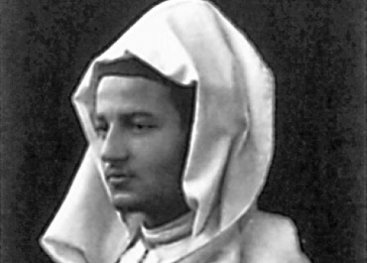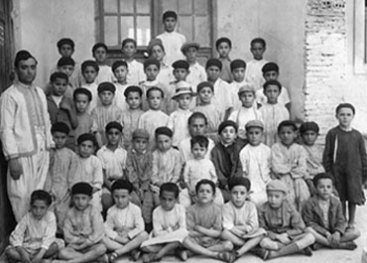
Moroccan prisoners of war in Zeeland
Marga van Dijk
‘We befriended some Moroccans. I remember Bellaïd Ben Achmed, whom we called Nimbou. At first he was tired and depressed. He was homesick and had to work very hard. Then he told us he would leave for France very early next morning. Probably the guards found him too troublesome. That morning we stood on the balcony of our house to wave goodbye to him and some others. He sent us letters from France.’
Marga van Dijk


Never seen such men
In the summer of 1943 Moroccans again come to Zeeland. They are prisoners of war who are forced to work for the Germans. They take part in the building of the Atlantik Wall, the German coastal defence works. The inhabitants of Zeeland have never seen such men before in their lives; dressed in long coats with strange hats and sandals.
Small camps
The Moroccans are housed in small camps in Middelburg, Borssele, Domburg, Aagtekerk and Koudekerke near Vlissingen. The villagers feel sorry for the strangers who are far from home and live behind barbed wire. They knit warm hats and scarves for the prisoners and sometimes bring some food. To thank the villagers the Moroccans make sticks carved with snakes and jewellery made of coins. Some become friends. As suddenly as they came, they leave in late 1944: the Moroccans are taken to camps in France and Germany.

Stories of locals
‘Every morning and evening the Moroccans walked through our street in Vlissingen on their way to work. When we had to go to school, we sometimes sat in the same tram they did. The girls tried to sit as close to them as they could and tried to have a talk or passed on notes. At one time the girls were called to the headmaster of the school. The German guards had complained. From then on it was forbidden to have contact with the Moroccans.’
Ad van Dijk
‘The Moroccans in Borssele were imprisoned in barracks on the Zeedijk behind barbed wire. I had never seen such dark men. They had beautiful curly hair. I liked to go to the camp together with some friends. One used to say Bye Bye to us. We thought that was his name until we later understood Bye was English. I was a seamstress and sometimes knitted clothes for the Moroccans. That was not allowed. If the Germans saw they wore one of our woollies, they would take it away. So I knitted socks and underwear. We thought that was very exciting, despite the horrible times we lived in.’
Francina Tatenhove
‘My mother, Neeltje Joziasse-de Witte, owned a grocery shop. She had placed a box on the counter and written on it: For the Moroccans. Customers could put food or clothes in it. Each day the prisoners, when they returned from work, looked in the box. They thanked my mother with snake sticks and rings that my mother at her turn gave to the generous customers. After the war she received thank-you-notes from the Moroccan forced labourers. She was very pleased and neatly kept them for years.’
Jannie Joziasse

